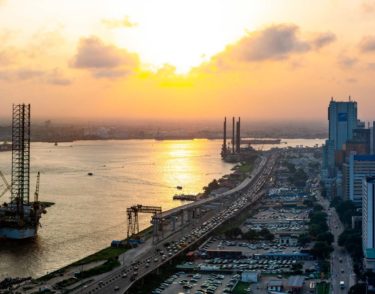Recent Release | 12 Sep 2022
Energy Transitions in Western and Central Africa: A focus on Nigeria, Ghana, Senegal, Equatorial Guinea and Mauritania

Africa Consulting Team
Oxford Economics Africa

The global energy transition involves the sustained displacement of fossil fuels by renewable energy and complementary technologies to reduce carbon intensity. It is, however, imperative to consider such shifts within the distinct developmental contexts of countries to ensure energy transitions are socially inclusive and just.
This latest report by our Africa consulting team examines how energy transitions are likely to unfold in Nigeria, Ghana, Senegal, Equatorial Guinea, and Mauritania. These countries exhibit stark energy poverty and are highly reliant on hydrocarbons to help fuel their economic development.
The study assesses the historic and future development of each country’s primary energy and electricity landscapes under two scenarios. Depending on the country, we find that total domestic primary energy supplies will have to increase by between 1.3% and 5.3% and electricity generation by 4.6% to 7.7% on average per year to 2050 in order to enable industrial development, improve human well-being, and reduce the harmful incineration of traditional biomass.
Energy transitions in these countries are likely to be distinct from those charted for other countries in Africa and elsewhere. A key finding is that natural gas and, to a lesser extent oil, is set to grow in the countries’ primary energy systems, while natural gas will progressively complement rising shares of renewables in electricity production. The proliferation of natural gas is essential to their fiscal, economic, social, industrial, and developmental futures. Even so, renewable energy and complementary technologies will concurrently continue to gain in prominence. The vast energy expansion requirements suggest an accompanying rise in carbon emissions, although the countries’ respective contributions will remain marginal and well below 0.3% of total global energy emissions by 2050.
The report was commissioned by Kosmos Energy, a leading deepwater oil and gas exploration and production company with a long history of working in Africa. Kosmos Energy’s assets include production offshore Ghana, Equatorial Guinea and the U.S. Gulf of Mexico, as well as a word-class natural gas development offshore Mauritania and Senegal.
About the team
Our Africa consulting team include specialists in quantitative economic analysis, working with clients around the globe and across sectors to build models, forecast markets and evaluate interventions using state-of-the art techniques. Lead consultants on this project were:

Deon Fourie
Senior Economist, OE Africa

Vincent Phiri
Senior Econometrician, OE Africa
You might be interested in

Africa: A continent besieged along old fault lines
Africa has, once again, taken centre stage as countries vie for the top spot. The playing field has shifted slightly, and the rules of engagement have moved more toward the economic arena. In this Research Briefing, we explore the economic and political ties between Africa and China, the US, Europe and Russia as the continent navigates the new multi-polar world order.
Find Out More
Barclays Sees Senegal’s Debt Burden Easing After Data is Rebased
As Senegal’s debt crisis mounts, the government continues to explore its financing options. To read the full article, click here.
Find Out More
A year older, none the wiser ‒ a fractious GNU stumbles on
South Africa's Government of National Unity (GNU) has struggled over the one year of its existence, largely because of the ad hoc manner in which it was assembled.
Find Out More
The Green Leap – Project bankability takes centre stage
The report argues that enhancing project bankability should become a main policy priority as part of climate investment endeavors.
Find Out More